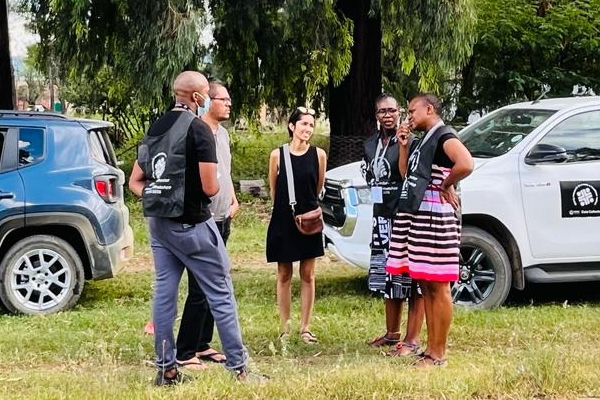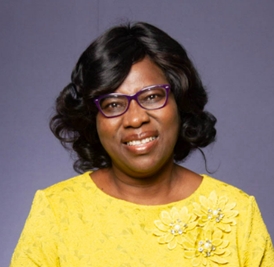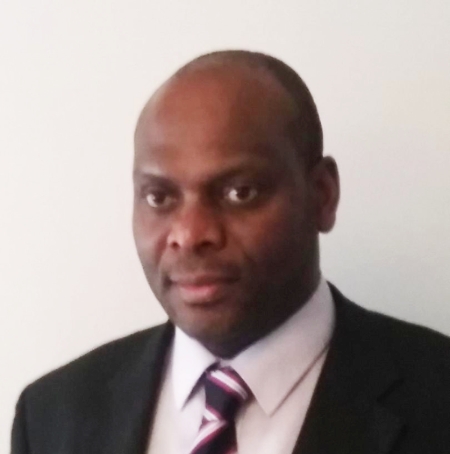Between 2010 and 2021, the number of new HIV infections declined by over 30%. Combine this with improved access and effectiveness of HIV treatment, and it’s tempting to think the fight is over. Yet, there were still 1,5 million new HIV infections globally in 2021. This figure, and many other nuanced statistics, prove that there is still much work to be done, which is why complacency has become the enemy. We need individuals across all communities, sectors and geographies to call out issues, propose solutions and correct misinformation. That is exactly what the academic programmes at the Africa Centre for HIV/Aids Management aim to do. We meet a few of the 11 graduates who recently completed the MPhil programme.
Committed to bringing about change, no matter how tough
The MPhil in HIV/Aids Management builds on the knowledge, competencies and managerial skills acquired with the postgraduate diploma.
While it is a blended learning course, the demands are no less strenuous. But these students are driven by more than simply acquiring a qualification – they know their research is only the foundation for further progress. As graduate Millicent Maoto says, even when things got tough, she realised that she had a responsibility to complete the course. Maoto works as the Eastern Cape provincial coordinator of the sixth South African HIV Behavioural, Sero-status and Media survey (SABSSM VI).
Winnie Clara Mkandawire, a project manager for an NGO mother-and-child health programme, had a similar personal conviction: “I found that working on a topic that was close to my heart, related to my work and with measurable outcomes kept me motivated.”
Shining a spotlight on all the complexities of the pandemic
With students having different backgrounds and working in different industries, their research topics vary widely, which is appropriate for a disease where social, cultural and economic factors play a critical role.
Pat Ade Ayebola, who works as a curriculum lead and teacher in English, maths and Biblical studies in the UK, focused his research on the perceptions of Christian leaders in Walsall (West Midlands, UK) about HIV intervention strategies. According to Ayebola, more than 50% of people living with HIV (PLWH) in the UK (with black African migrants being most affected) are Christians. “Understanding the perceptions of Christian leaders would be useful in planning and implementing effective HIV strategies to get new infections and HIV-related deaths to near zero and eliminate stigma,” he explains.
Maoto based her research topic – alternative HIV healthcare solutions for transgender women – on the findings of earlier research. “Most of the studies on access to and experiences of the healthcare system by transgender women have inferred that they have negative experiences due to their gender identification,” says Maoto. Combined with their elevated risk of acquiring HIV, Maoto wanted to address the gap in identifying alternative healthcare solutions for this group.
Mkandawire, who was working as a nurse mentor at the time of her research, wanted to find a way to help her mentees who are trained in nurse-initiated management of antiretroviral therapy (NIMART) to complete their training requirements successfully. She therefore evaluated a method to help NIMART-trained nurses complete a portfolio of evidence and improve their accreditation rate.
Practical value beyond a research paper
This level of targeted research leads to findings that HIV advocates across the continent and globe can put into practice and research further. The students are also already picking the fruit of their efforts. “The MPhil course has strengthened my data analysis, project planning and research skills. All these elements are vital in my current job,” says Mkandawire. In a similar vein, Ayebola’s research among Christian leaders has already opened up potential networking opportunities relating to key challenges such as late diagnoses.
Looking to the future – a plea for the global south
Based on the progress already made in fighting Aids, ambitious global targets have been set, including ending Aids by 2030. The Africa Centre graduates, all of whom have regular, first-hand exposure to the grassroots situation in Africa, know the road will be rocky.
While many of Africa’s challenges are well-documented (such as poverty, social and cultural beliefs, and under-resourced healthcare facilities), there is another vital puzzle piece that must fall in place, according to Ayebola: “Africa needs strategic and effective leadership (and followership) to place itself where it really should be among less-endowed continents. Accountability in public life, for instance, would make a big difference in governance.”
This idea points to the other side of the coin of Maoto’s very apt and sobering observation: “We need to consider that we are dealing with a disease that is mostly dependent on human behaviour, which is out of our control.” While individuals can make poor, uninformed choices in their private lives, committed and active citizens like these graduates and leaders have to maintain accountability and accept responsibility if we want to claim victory over this pandemic.
The recent MPhil graduates from the Africa Centre of HIV/Aids Management are using their newly acquired skills and expertise in different fields:



